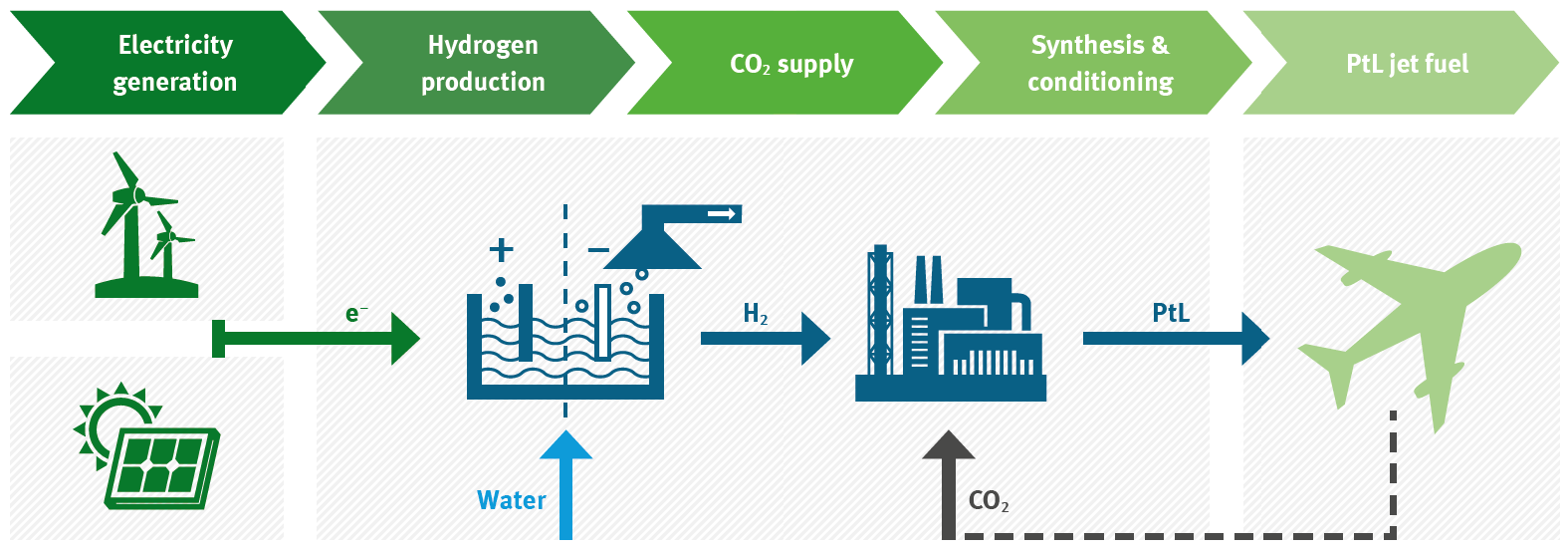Power-to-Liquid (PtL) for Aviation | |
| Objective | |
The purpose is to provide the scientific basis on Power-to-Liquid (PtL), an alternative fuel production pathway. The pathway doesn´t depend on biomass, thus has no demand for arable land and low demand for water.   PtL is a drop-in replacement for conventional jet fuel. PtL is a drop-in replacement for conventional jet fuel.
| Category Research
Value-chain stepFull value-chain
Type of pathway Power-to-Liquid
Starting time and duration2015 -
Stakeholders Governments, Research
Regional scope National
Involved countries Germany
Status On-going |
| Description |
Power-to-Liquid (PtL) is a new alternative fuel production pathway from renewable energy sources, water and carbon dioxide:

For detailed description see https://www.umweltbundesamt.de/publikationen/power-to-liquids-potentials-perspectives-for-the.
The alternative fuel produced through this process is drop-in compatible and, if produced through the Fischer-Tropsch conversion process, it is already approved for use in aircraft by the ASTM.
Compared to conventional aviation fuel, the production of PtL has a favourable GHG balance, while using water and land more efficiently than the production of aviation alternative fuels made from biomass. The main outstanding challenge for commercial scale PtL production is the production cost compared to that of conventional aviation fuel.
|
| Partners | |
- German Environment Agency (UBA),
- Bauhaus
  Luftfahrt Luftfahrt   e.V., e.V.,
-
Ludwig-B
  olkow-Systemtechnik GmbH olkow-Systemtechnik GmbH
| |
| Achievements to date | |
| |
| Contact information | |
https://www.umweltbundesamt.de/en See also the EU Horizon 2020 project Sun-to-Liquid, which develops a thermochemical pathway via concentrated solar radiation - instead of electricity in the PtL pathway. The Sun-to-Liquid process results in carbon-neutral, drop-in capable jet fuel. The projects purpose is to design, fabricate and experimentally validate a large-scale, complete solar fuel production plant (http://www.sun-to-liquid.eu)
| |
